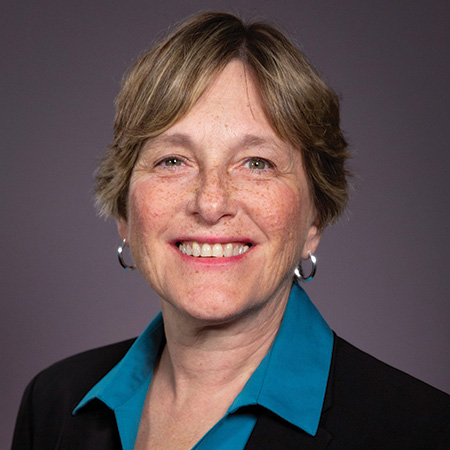Lifelong Learning
PRESIDENT’S MESSAGE
IFT’s very existence is founded on the idea that we are stronger together than we are as singular scientific or technical contributors to the global food system. We also know that the pace of innovation and scientific acceleration is such that a career contributing to the global food system will require constant curiosity and the development of new skills and information to achieve our individual career goals and collective mission.
A few years ago, Gallup and Purdue University published the inaugural Gallup-Purdue Index. The index is a tracking study of more than 30,000 college graduates to determine the degree to which they feel they are achieving success, leading fulfilling professional lives, and thriving post-college. Among the many areas of output from this study is the connection between students’ specific experiences during their college careers and career success and engagement as new professionals.
According to Gallup, in addition to the academic requirements for graduation, there are six key variable experiences during college that will translate to professional engagement and readiness to succeed in the workplace. Gallup calls these the “big six.” Of the six, two were related to supportive professors, while the other four were related to mentorship, internship, involvement in organizations, and longer-term project-based work in and outside of the classroom.
Though the Gallup data conclusively present these factors in translating to career readiness and success, it also tells us that less than a third of students engage in these impactful activities. Not coincidentally, the four non-professor-related experiences can be had by participating in the IFT Student Association (IFTSA).
While the Gallup data is compelling, it’s not very surprising—at least not to those of us engaged in IFT and the IFTSA. Rather, it validates what we’ve been saying for decades: learning is a lifelong pursuit, and it’s not limited to the classroom, lab, or collegiate experience.
The foundation of science and the scientific method is experiential learning. Such learning is rooted in inquiry, collaboration, apprenticeship, and peer review. This means that experimentation—in scientific as well as professional endeavors—is facilitated with the support of a network, which Gallup suggests is the underpinning for a successful transition from college to the workplace. This is the cornerstone for all the transitions we make along our career path and is intrinsic to the lifelong learning that cultivates career fulfillment and success.
IFT has made a commitment to our student members through the IFTSA. These students are our future, and it is imperative that we provide them with experiences that they can leverage to advance their future careers as well as the science of food. Lifelong learning begins in IFTSA. These engaged students already know what Gallup has told us, and they are taking control of their own career destinies by investing in themselves and their own success. By taking advantage of the IFTSA leadership opportunities, competitions, and interactions with IFT members, these students come out of school better positioned for their transition to professional life.
However, that learning perpetuates and becomes even more important post-transition as new professionals adapt and contribute to the rapid pace of innovation and scientific disruption. IFT continues to nurture traditional technical and soft-skill development through short courses, webinars, scientific sessions, and online courses. Likewise, learning can be fostered through cross-disciplinary networking, cross-generational mentoring, peer-to-peer exchanges, and collaboration in IFT groups like sections, divisions, and volunteer working groups. These opportunities provide an environment where IFT members can exercise and further hone their communication, leadership, and active listening skills in an “on the job” context. Such experiences offer insight and fulfillment to members of our community across the experience spectrum.
Therefore, IFT and IFTSA are not just loosely aligned but strategically connected and constantly seeking to support and learn from the other. The IFTSA president, president-elect, and immediate past president are members of and actively contribute to all IFT Board of Directors meetings, not only helping to guide the organization, but heavily influencing its direction. Their contribution is not symbolic; it is essential to the organization we are building and for the future of our profession. From career beginning to end, lifelong learning in all its forms is directly tied to personal growth and professional accomplishment. At IFT, we believe that a community of individuals empowered to achieve the success they desire translates to the entire global food system succeeding in producing a safe, nutritious, and sustainable food supply for everyone.
 Michele Perchonok, PhD, CFS
Michele Perchonok, PhD, CFS
IFT President, 2018–2019
[email protected]
 Elizabeth Clark
Elizabeth ClarkIFTSA President, 2018–2019
[email protected]


